$28.00 – $160.00
A tea with rizz: supplying a visceral high, ample throat and afterbreath effects, an unapologetic bitterness, and an indomitable heaviness that could easily crush the spirits of aspiring raw pu'er fiends.
A brutish perfume engulfs the nasal cavities upon taking in the vapors off the first steep of this Lao Man’e, the so-called Laphroaig of Pu’er.
Upon entrance, its bittersweetness immediately rouses the mouth's mucosa, coating from back to front, leaving nothing unaltered; the smell of the air and ambient taste on the breath changed by the addition of this substance. Huigan (returning sweetness) and shengjin (salivation) arrive quickly, and as soon as all the surface areas of leaf are flushed over with the steep water and its tea pours a consistently thick and clear olive oil gold.
Qingjing’s family’s ancient arbors feature an estimated to 30% of 苦茶 kǔ chá "bitter tea" variety and 70% 甜茶tián chá "sweet tea" variety and therefore a measured hand at brewing is recommended if bitterness is to be dialed to one’s liking. Palates that have a sensitivity to bitterness may fare better with other teas, though if you’re reading this page you might just be hunting down the sweet masochism that the pleasant bitterness of some robust pu'er teas provide.
This bitterness was sought after for blends by the state owned factories of the 20th century, due to its ability to transform into a potent, sweeter medicinal broth with age. In some connoisseur circles, by the decade mark, a well-stored Lao Man’e cake is more desired than Lao Banzhang tea.
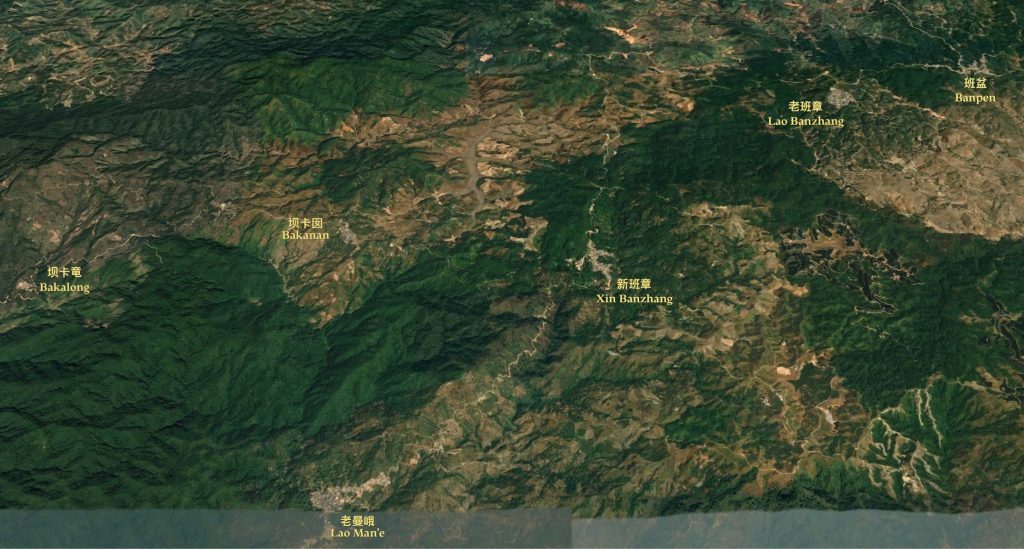
Lao Man'e is the southern most of the 班章五寨 Bānzhāng wǔzhài "5 villages of Banzhang" in the Bulang Mountains of Southern Menghai county, about 10 as-the-bird-flies miles from the Burmese border
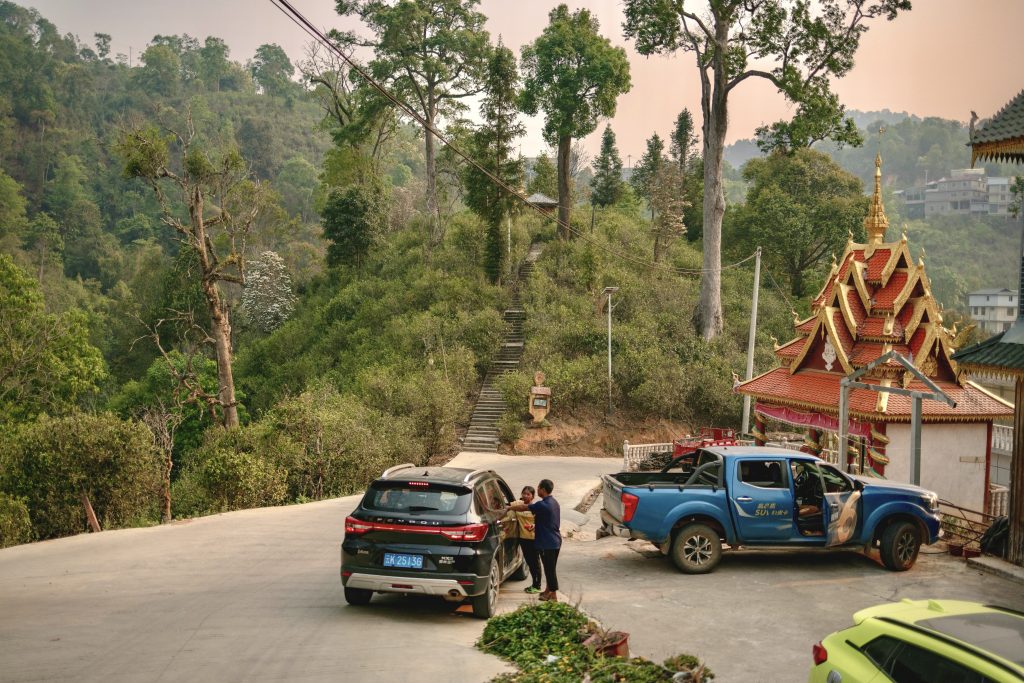
老曼峨 Lǎo màn é is the oldest village in the Bulang Mountains, with a history of around 1400 years, and remains a bastion of Theravada Buddhism. It boasts some of the largest and oldest landscapes of ancient tea tree arbors in the area, with over 500 acres (3200 亩) of gushu within the 100-500 year old range. Its elevation is at 1250 meters, relatively modest for a famous tea village.
We were introduced to Qingjing as Lao Man'e Qingjing 法师 Fǎshī - an honorific title for master priests. Throughout our time with him, young monks would approach Master Qingjing to ask for help translating Pāli language texts, the sacred language of original Buddhist scriptures. Behind the temple grounds we strolled through Qingjing's family tea arbors, hosting around 800 ancient trees, 2 of which are celebrated 茶王树 tea king trees.
On April 18th, Qingjing's team of 12 harvested the fresh leaves from the trees around this cha wang arbor and processed it into mao cha.
Although Lao Man'e is recognized as the major leagues of heavy, domineering Bulang-style tea, after spending time drinking tea with some families there, I started to consider that this may be more of a statement on the market and the tastes of the general public. Here on the land that produces such a bestial substance, were some of the most courteous and gentle souls I had ever met. If I wasn't content to simply just be in the glow of their hospitality, the contrast between the soft sweetness of their personalities and the most sweat-inducing ancient tree kucha bitter variety of tea that they were serving me at the midnight hour would have been too much to figure out. Maybe there's something special in the tea.
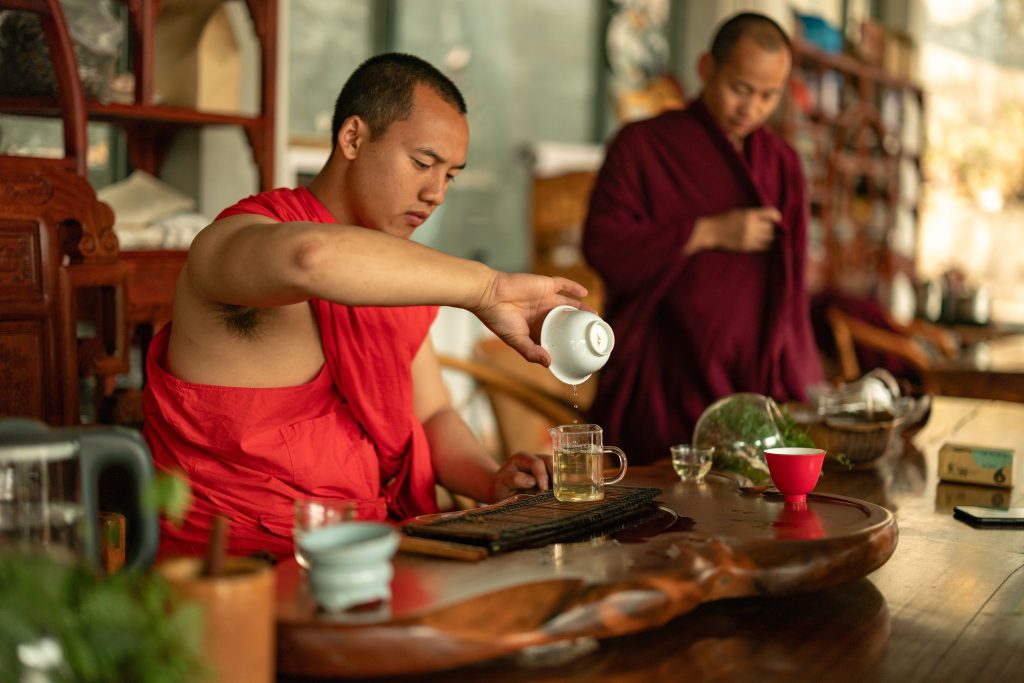
This year's cake wrapper artwork theme, Water Creatures of the Mekong, feature fish and mammals that call the Mekong River (the part that runs through Yunnan is referred to as the Lancang River) home. A hand-inked drawing by Rosy Kirby of Lost Mountain Prints of one of these creatures grace the front of each cake, and this year's Lao Man'e tea features the fish the Mekong Giant Catfish Pangasianodon gigas.
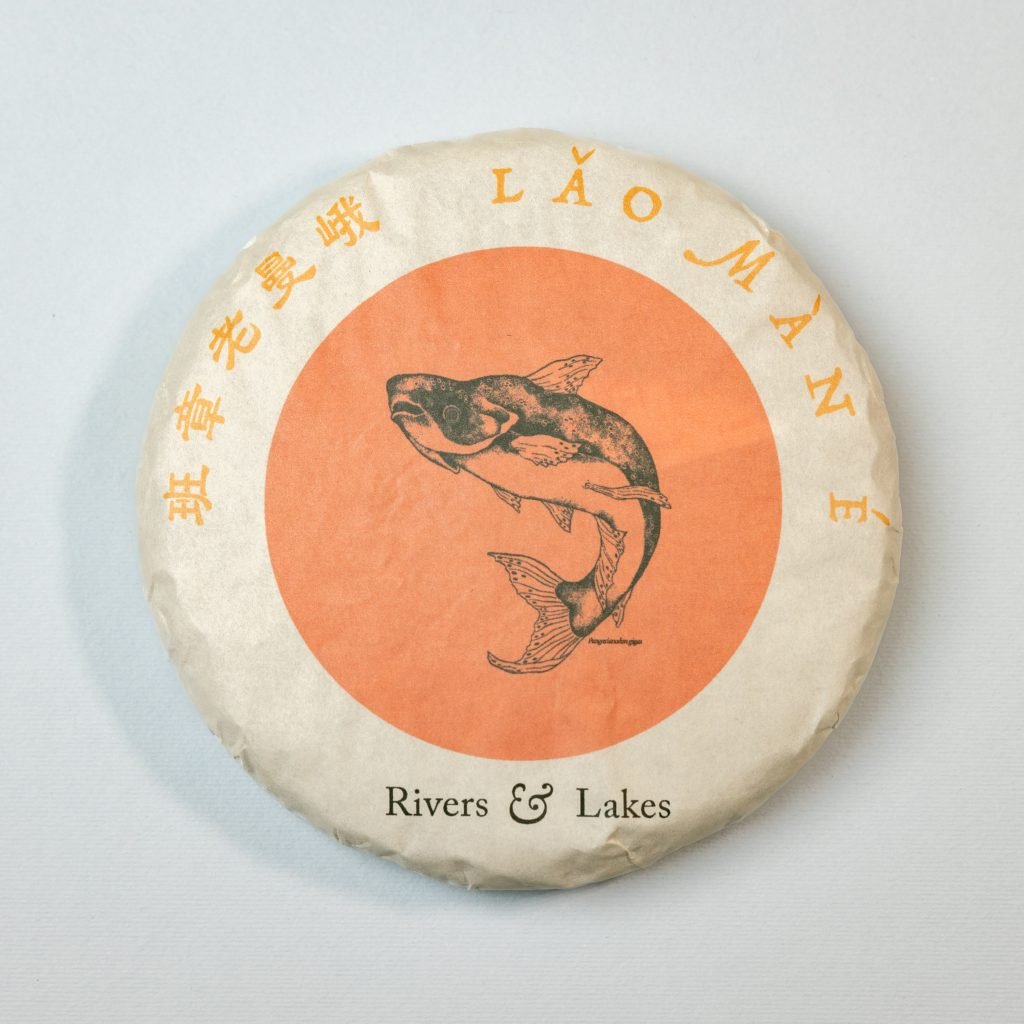
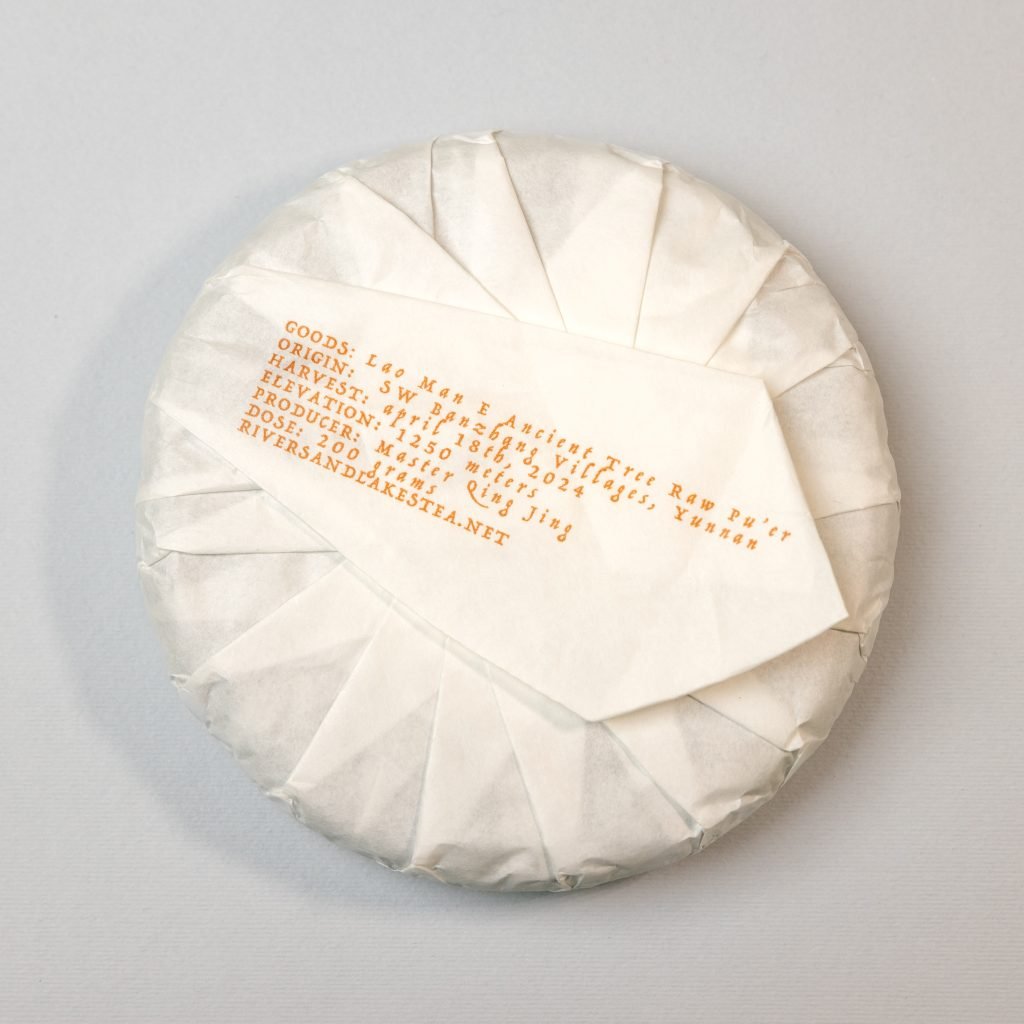
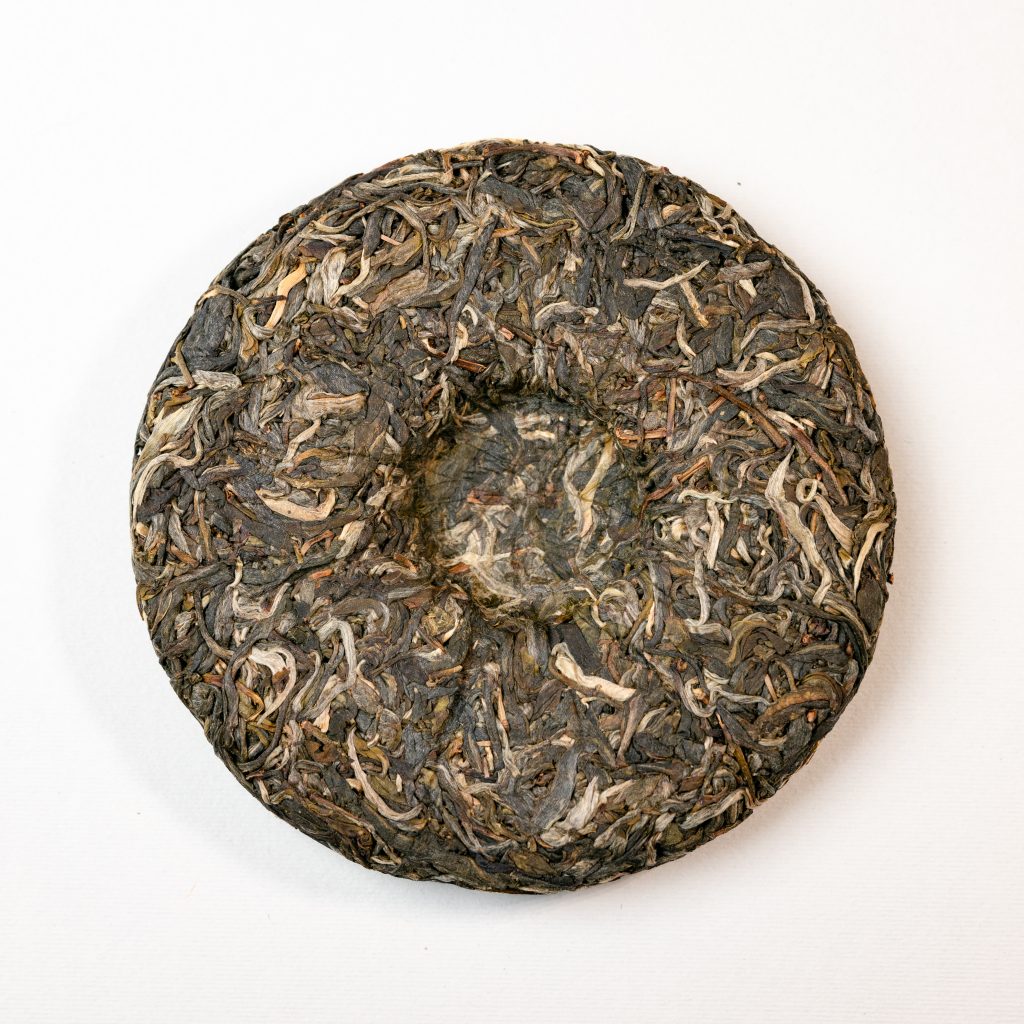
I am a big fan of Lao Man E. I am more used to pure kucha / bitter variety of Lao Man E. I like this good bitterness.
From the second brew, the bitterness and the strengh are here. It immediatly and purely bites the tongue.
The texture of the liquor is pure, silky, very enjoyable to keep in mouth for a long time...
Very good stamina.
I am impatient to see how this tea will evolve in the next months and years...
Very nice addition to the R&L line-up !